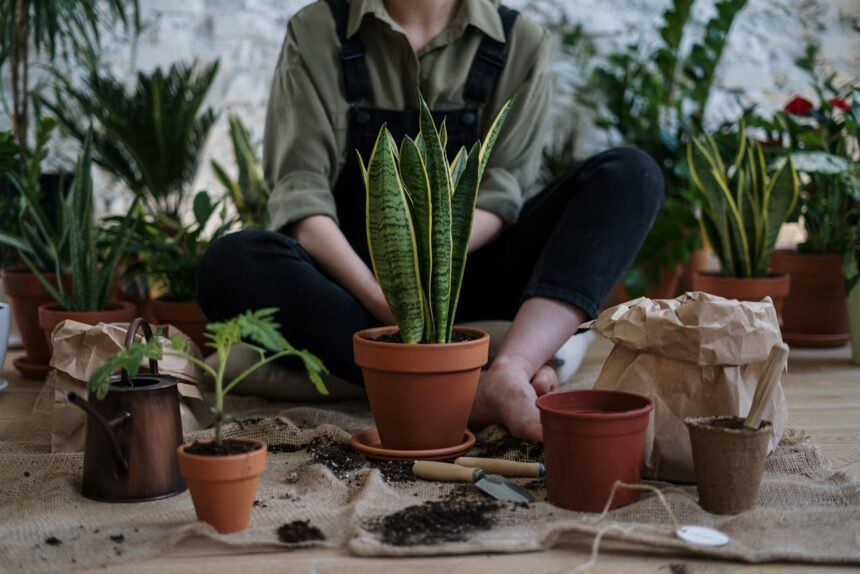In today’s world, where sustainability and self-sufficiency are increasingly valued, growing your own food has become a rewarding endeavor. Whether you’re a seasoned gardener or just starting, cultivating vegetables, herbs, and fruits for every season can be both fulfilling and beneficial. In this comprehensive guide, we’ll delve into seven expert tips to help you successfully grow your own food year-round, ensuring a bountiful harvest and a healthier lifestyle.
Understanding Your Climate:
Choosing Suitable Crops
In the realm of gardening, understanding your local climate is paramount. Different plants thrive in different conditions, so it’s crucial to select crops that are well-suited to your region’s temperature, rainfall, and sunlight levels. Research which vegetables, herbs, and fruits are best suited for your climate zone to ensure optimal growth and yield throughout the year.
Planning Your Garden:
Seasonal Crop Rotation
To maintain soil health and optimize plant growth, consider implementing a seasonal crop rotation strategy. Rotate your crops each season to prevent nutrient depletion and reduce the risk of pests and diseases. By alternating between plant families, you can replenish soil nutrients and minimize the buildup of pathogens, resulting in healthier plants and higher yields.
Preparing the Soil:
Importance of Nutrient-Rich Soil
Before planting, prepare your soil by enriching it with organic matter such as compost or aged manure. Nutrient-rich soil provides essential nourishment for plant growth and helps retain moisture, promoting healthy root development and robust crop yields. Conduct a soil test to assess its pH level and nutrient content, and amend accordingly to create an optimal growing environment for your plants.
Planting and Maintenance:
Proper Spacing and Watering
When planting your crops, ensure adequate spacing between each plant to prevent overcrowding and competition for nutrients. Follow spacing recommendations specific to each crop to allow for proper air circulation and minimize the risk of disease. Additionally, maintain consistent watering practices to keep the soil evenly moist, especially during periods of drought or intense heat.
Pest and Disease Management:
Natural Remedies
Combating pests and diseases organically is key to maintaining a healthy garden ecosystem. Incorporate natural pest control methods such as companion planting, beneficial insects, and homemade organic sprays to deter common garden pests without resorting to harmful chemicals. Regular monitoring and prompt intervention are essential for preventing infestations and minimizing damage to your crops.
Harvesting and Storage:
Maximizing Freshness
To enjoy the freshest produce from your garden, harvest fruits and vegetables at their peak ripeness. Monitor your plants regularly and harvest them as soon as they reach maturity to ensure optimal flavor and nutritional content. Proper storage techniques, such as refrigeration or canning, can extend the shelf life of your harvest and allow you to enjoy homegrown produce throughout the year.
Conclusion:
Growing your own food is a gratifying journey that offers numerous benefits for both you and the environment. By following these expert tips for cultivating vegetables, herbs, and fruits for every season, you can create a thriving garden that provides fresh, nutritious produce year-round. Embrace the joy of gardening and reap the rewards of a sustainable and self-sufficient lifestyle.
FAQs:
- What are the easiest vegetables to grow?
- Tomatoes, lettuce, and peppers are among the easiest vegetables to grow for beginners due to their relatively low maintenance requirements and high yield potential.
- How often should I water my plants?
- The frequency of watering depends on various factors such as soil type, weather conditions, and plant species. Generally, aim to water your plants deeply and infrequently, allowing the soil to dry out slightly between waterings.
- What can I do to deter pests naturally?
- Natural pest deterrents include companion planting, using insect-repelling herbs such as basil and mint, and introducing beneficial insects like ladybugs and lacewings to prey on pests.
- When is the best time to harvest fruits and vegetables?
- Harvest fruits and vegetables when they reach peak ripeness, which is typically indicated by color, size, and texture. Refer to specific harvesting guidelines for each crop to ensure optimal flavor and quality.
- How can I improve soil fertility?
- Enhance soil fertility by incorporating organic matter such as compost, manure, or cover crops. These amendments enrich the soil with essential nutrients and improve its structure, promoting healthier plant growth.
- What should I consider when planning my garden layout?
- When planning your garden layout, consider factors such as sunlight exposure, soil drainage, and proximity to water sources. Arrange your crops strategically to optimize space and facilitate easy access for planting, maintenance, and harvesting.









